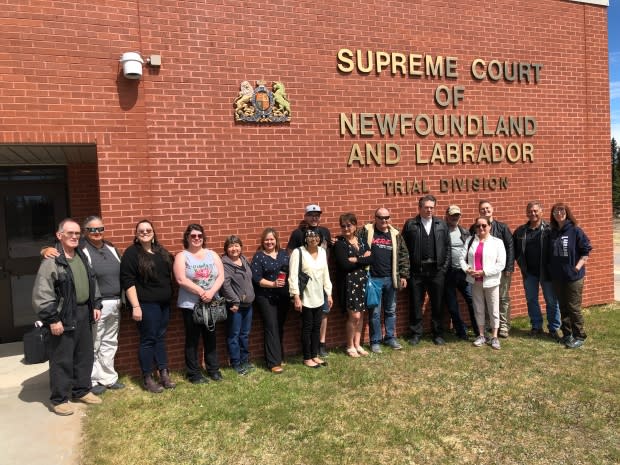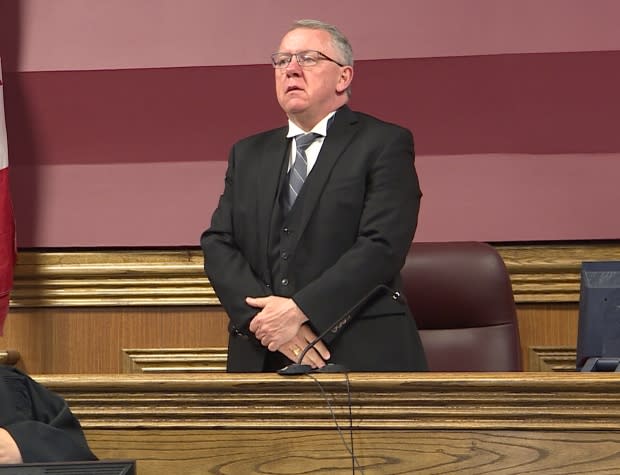Civil court proceedings near end, more than 2.5 years after Muskrat Falls occupation
Two and a half years later, civil court proceedings for those accused of breaching a court-ordered injunction at the Muskrat Falls site is nearing the end.
"I understand it, but it's frustrating," Labrador Land protector Denise Cole said Friday. "It's been a long three years."

The Supreme Court ordered some of those who occupied the Muskrat Falls site in October of 2016 to leave or stop blocking access, and many of those that took part in the actions were ordered to appear before the court.
Nalcor lawyer Chris King concluded his case on Thursday and defence lawyer Mark Gruchy spent Friday morning submitting arguments for his clients in Happy Valley-Goose Bay.
King argued that an injunction notice was clearly posted at the entrance to the site, and given the attention the actions at the site were receiving in town and in the media, there was "willful blindness" on the part of those accused of contempt.
"There was so much emotion, there was so much happening, people were concerned about their lives, about their culture. They were concerned about what was happening around them," Cole said.
If there were good reasons not to formally find contempt, even if it was to exist, then a court doesn't have to. - Mark Gruchy
"Whether a piece of paper was on a fence for them to see or not, you have so much happening, you have hundreds of people."
'It's been hard on people'
Gruchy argued that these are ordinary people caught up in extraordinary circumstances. He said they were drawn together by a shared concern for the project.

"I'm glad it's coming to an end in the major substantive sense for sure," Gruchy said. "It's been hard on people."
Gruchy also spoke to the importance of reconciliation and that this is an opportunity for the court to help further it. He said even if the judge does find that there was contempt, it is at the judge's discretion whether or not to impose a punishment for contempt.
"If there were good reasons not to formally find contempt, even if it was to exist, then a court doesn't have to," said Gruchy.

"I was suggesting in my argument that that is a way that the court could demonstrate its respect and regard for reconciliation-oriented principles."
Gruchy also told the court it did not matter to Nalcor whether there was an acquittal or a conviction, it has done its job by simply putting the evidence before the court. But he added that discretion in this case wouldn't be fair to those who resolved their cases dealt with in different ways.
"With respect to the other cases. I don't think anyone's ever asked for it before, with respect to the discretion to not impose contempt be exercised, so we'll see," Gruchy said.

Justice George Murphy said he will consider everything he's seen and heard and have a decision in the next few months.
Read more from CBC Newfoundland and Labrador

